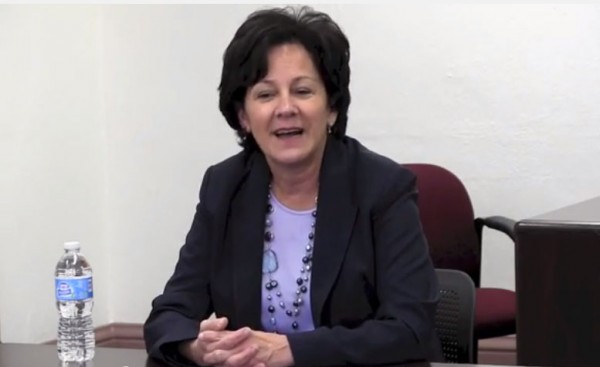EL PASO — The Chief Executive Officer of ImpreMedia, the nation’s leading Hispanic Media Company, told students at the University of Texas at El Paso that media today must inform, educate and empower communities.
Born into mainstream media — Monica Lozano’s father owned the powerful La Opinion, a Spanish language newspaper in Los Angeles — she quickly realized that she would find her destiny in the field of journalism.
Lozano said she trained teams of Spanish language journalists to do groundbreaking reporting, which had a lasting effect on the profession and the community. “The evolution of the Latino community and media, that is my greatest achievement,” she told a group of students and faculty at UTEP.
Her professional life took a new turn in 1990 when she moved from the journalistic side of media to the business side. “A role that goes beyond just providing information, to inform, educate and empower is the most important thing that we do,” Lozano said.
Her transformation from journalist to Chief Executive Officer of ImpreMedia has placed her in a unique position to continue influencing media and communities.
Monica Lozano, C.E.O. of ImpreMedia the nation’s leading Hispanic Media Company. Photo credit: Luis Hernandez
The new direction of Latino media will be focused more on diversified content or “passion points,” Lozano said, referring to more specific content that concentrates on areas of interest for different lifestyles and generations. The future of Latino media will also involve English language media and its coverage of Latinos, she said.
“There is a very bright future still for Spanish language media. Latino families are multi-generational and multilingual and that is our future,” said. There is a need for Spanish language media to adapt to the digital era and to keep up with trending social media, she said.
ImpreMedia along with other Spanish-language news media will face technological challenges and will have to continue to adapt and transform itself. This also means that there will be a need for more and better training of Latino reporters especially those accustomed to working exclusively in print media.
“You don’t stay in business long if you don’t adapt,” Lozano said. These changes are already taking effect at La Opinion as new reporters lead veteran reporters into new forms of media and technology.
Technology has triggered a slow but definite transition from strictly print to a combination of media, including a website, Twitter, Facebook, etc., she said.
Lozano said that ImpreMedia and its affiliates are now less about Spanish language and Latino culture and more about competing as a major metro media sources.
There is a bright and continuously evolving future for Latino media awaiting the next generation of Latino journalists, she said.

